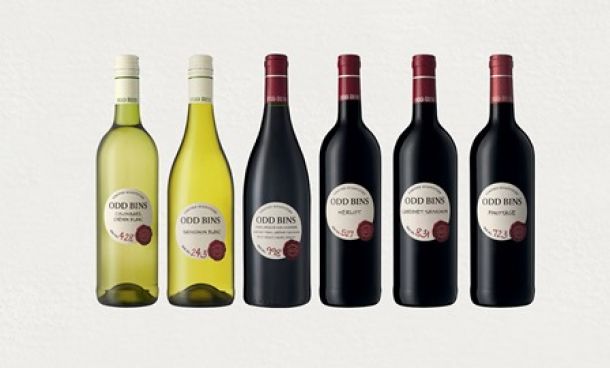Drought hits wine hard
In a blow to the wine industry underpinning the Western Cape economy, the drought has caused an estimated 6.7 percent drop in the annual grape crop.
The 2016 wine grape crop is estimated at 1 378 596 tons, according to the latest figures from South African Wine Industry Information and Systems.
However, the quality of some of the wines are expected to be higher.
Francois Viljoen, of VinPro, the representative organisation for close to 3 500 South African wine producers and cellars, said while challenging conditions led to a reduced wine grape crop, grapes were healthy and concentrated flavours promised good wines.
“Although the crop is smaller, the industry still managed to reach higher productions than initially expected following a season characterised by abnormal heat and water shortages,” Viljoen said.
Water supplies had a great impact, he said, especially in vineyards not buffered against the heat.
Regions such as Robertson and the Klein Karoo, which received sufficient winter rainfall, had higher productions, while Worcester, although experiencing unusual heat and veld fires, also obtained a bigger harvest. Stellenbosch had a significantly smaller crop due to dry, warm weather conditions and veld fires.
Paarl also experienced an abnormally small crop of which the cultivars all ripened early and simultaneously. Malmesbury and Swartland had a significantly smaller crop taken in early and over a short period.
There was also burn damage from the sun from the middle to the end of January, hitting Stellenbosch and Worcester hardest. The extent of the damage will be determined in the months to follow, VinPro said.
While most other regions produced smaller crops, diseases and pests were limited due to the dry season.
Agri Western Cape chief executive Carl Opperman said many of the province’s agricultural commodities were hit by the drought and extremely warm temperatures this season, and the wine grape industry was no exception. They also suffered losses due to fires.
However, the industry has the expertise to manage challenging seasons, to continue to contribute to the growth of the agricultural sector of the Western Cape, Opperman said.
Economic Opportunities MEC Alan Winde said: “The drought is predicted to affect us for a few more years, and it is imperative that residents continue to save water.”
Winde said the department had assisted several farmers to adopt conservation agriculture practices. “The outcomes have been especially good in the small grain, potato and rooibos industries. We will continue to support this initiative with focused research and technology transfers.”
Winde said while indications suggest that the grape crop is smaller than last year, it is also of a very high quality, enabling producers to sell at higher prices.
“Through Project Khulisa, a provincial growth and jobs strategy, emphasis has been placed on growing our wine exports.
“We have put aggressive marketing campaigns together, in conjunction with Wesgro, targeted at specific markets with high potential. We are also working with a broad range of government departments, locally and nationally, to grow the water capacity of the Brandvlei Dam to ensure more land comes under irrigation.
“Through this project we are aiming to significantly grow employment in the region.”
@lisa_isaacs
News Category
- International retailers
- On the move
- Awards and achievements
- Legislation
- Wine and liquor
- Africa
- Going green
- Supplier news
- Research tools
- Retailer trading results
- Supply chain
- Innovation and technology
- Economic factors
- Crime and security
- Store Openings
- Marketing and Promotions
- Social Responsibility
- Brand Press Office
Related Articles

Makro secures exclusive rights to SA’s most sou...

Checkers adds 41 new wines to Odd Bins range

With petrol at almost R20 a litre, food prices ...

Petrol price shocker for South Africa


